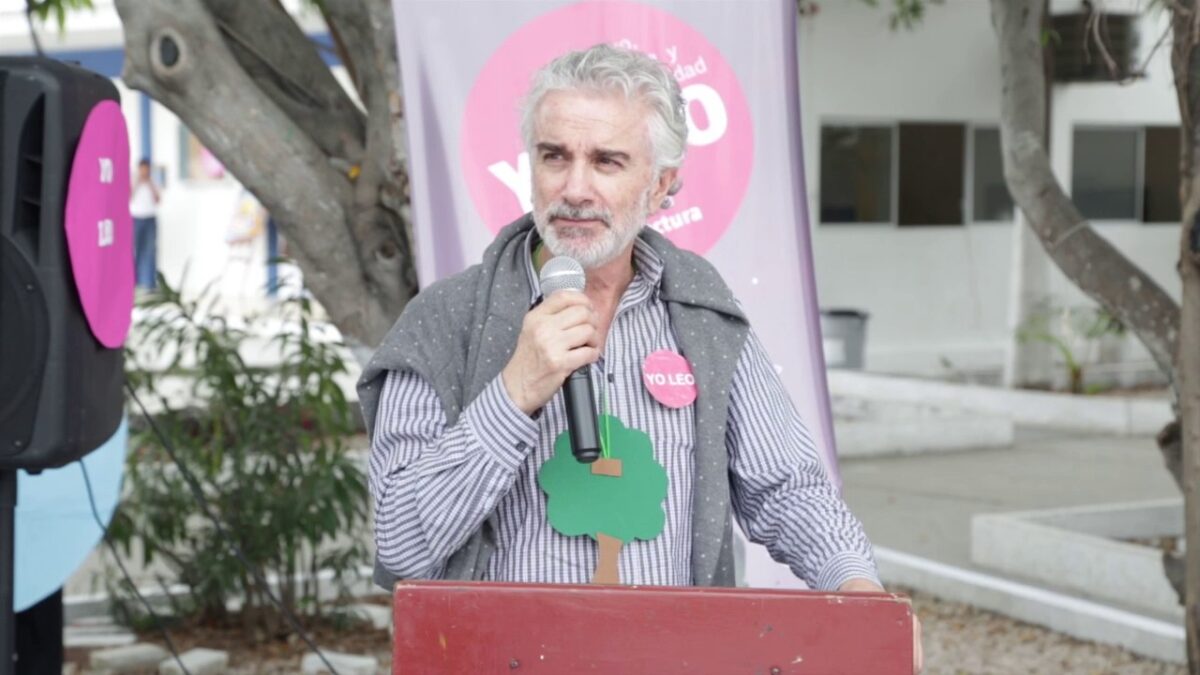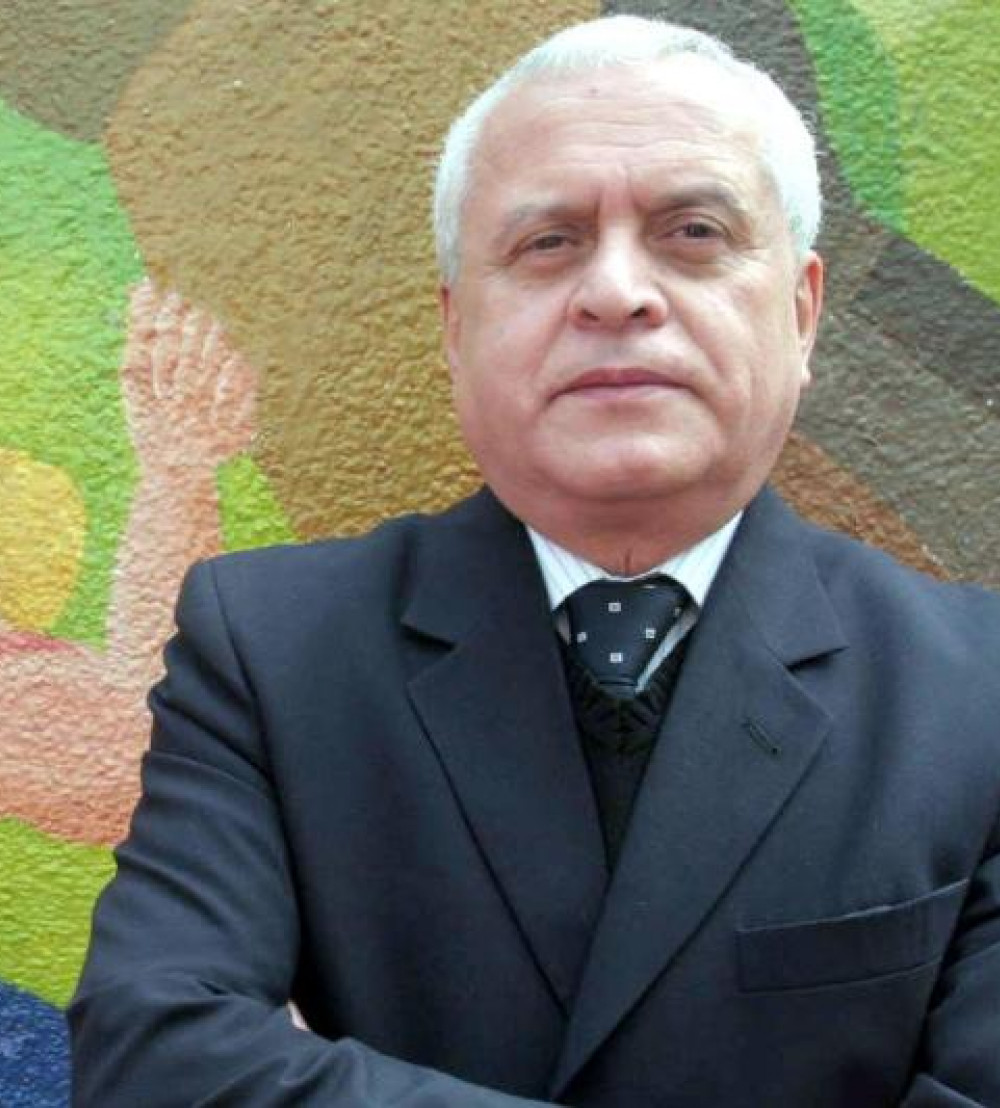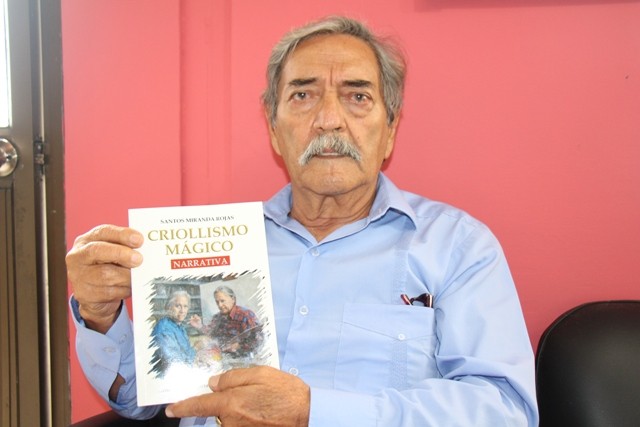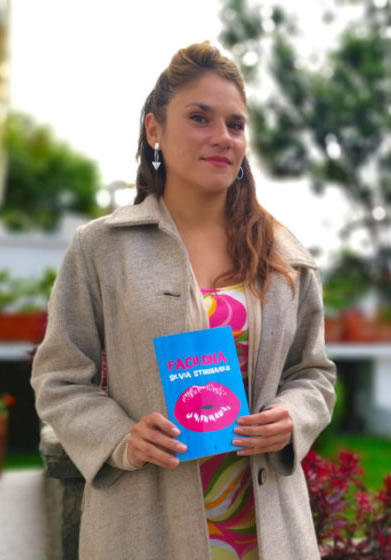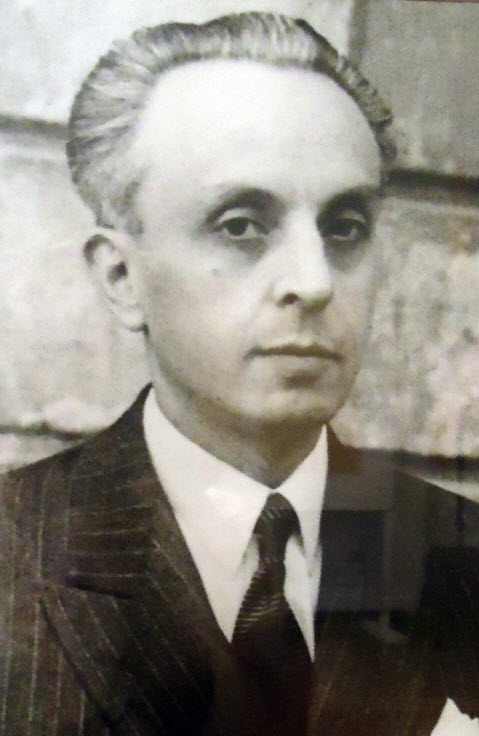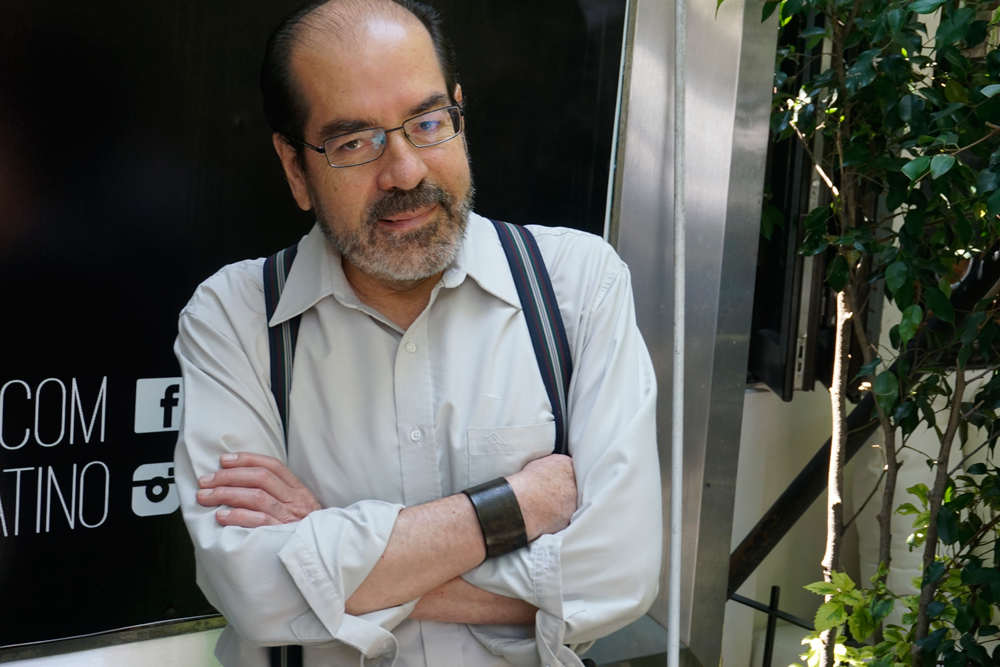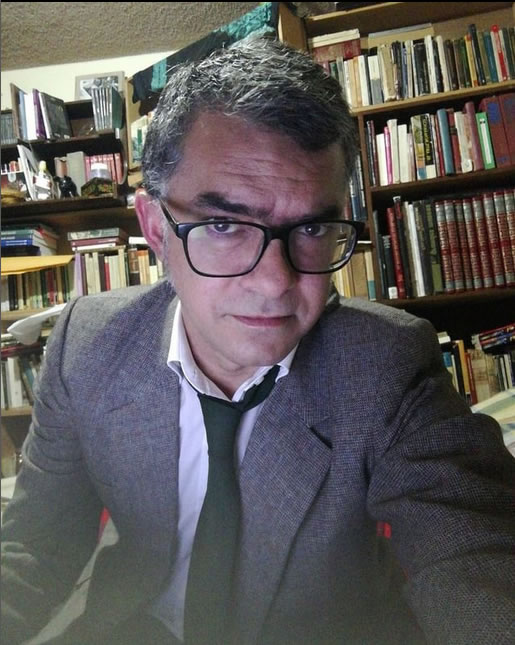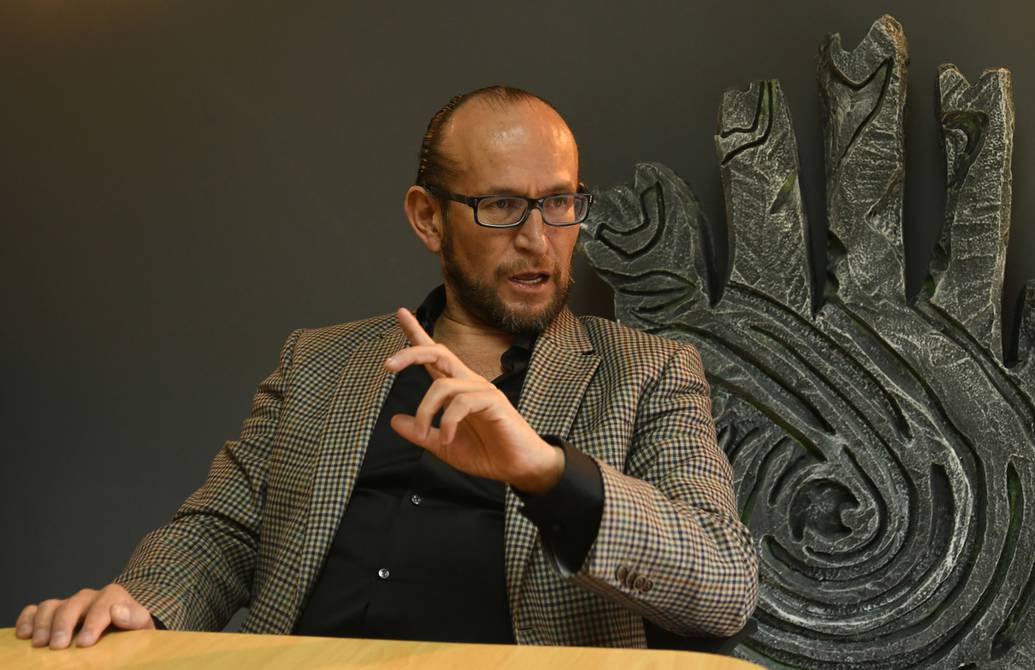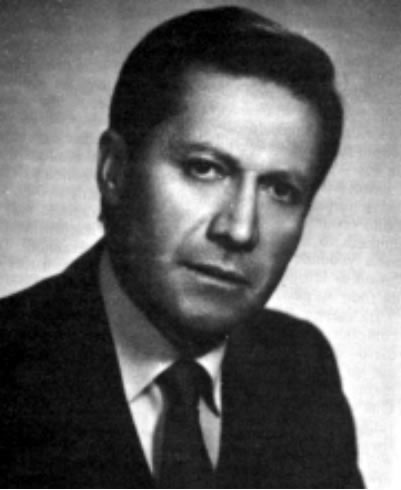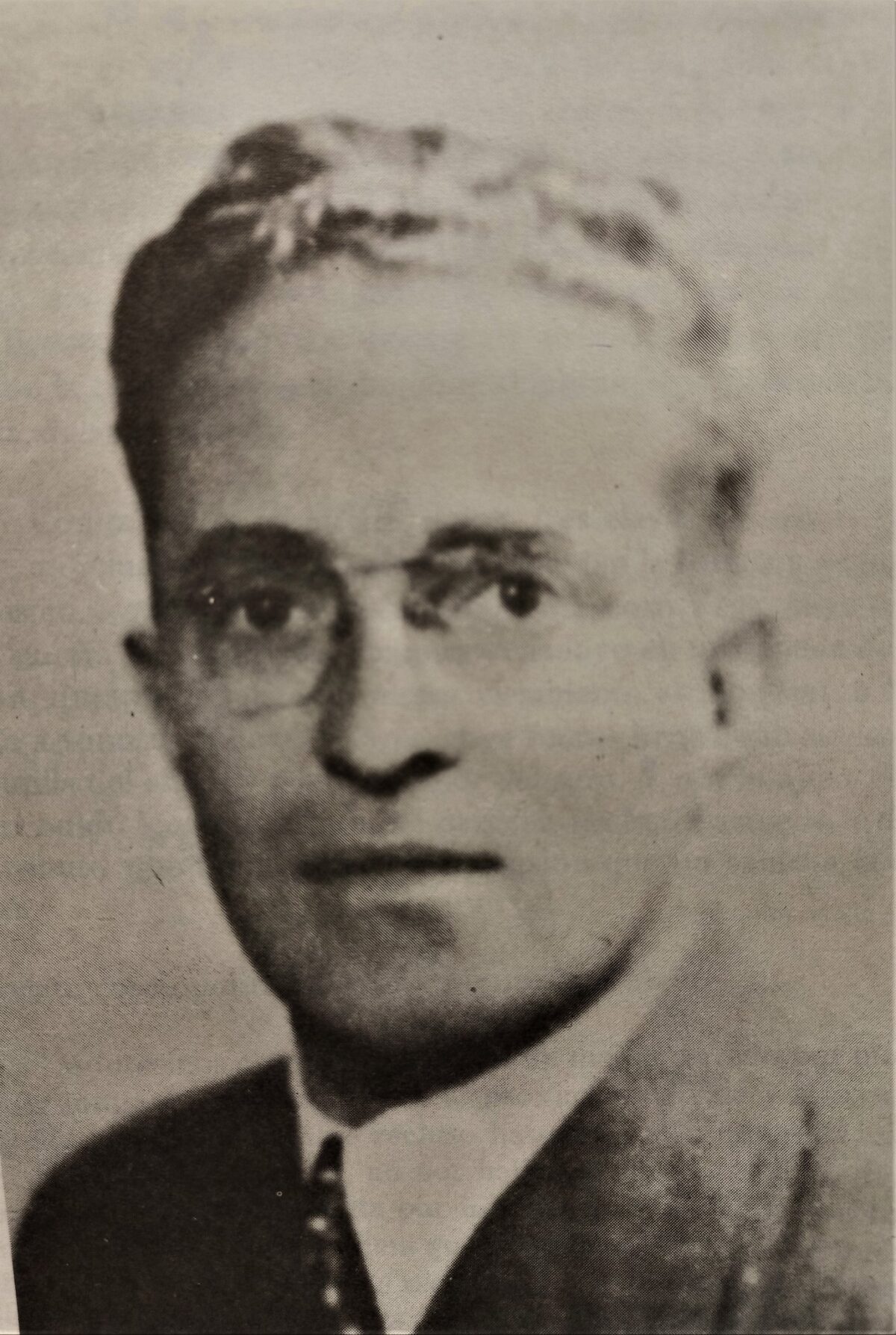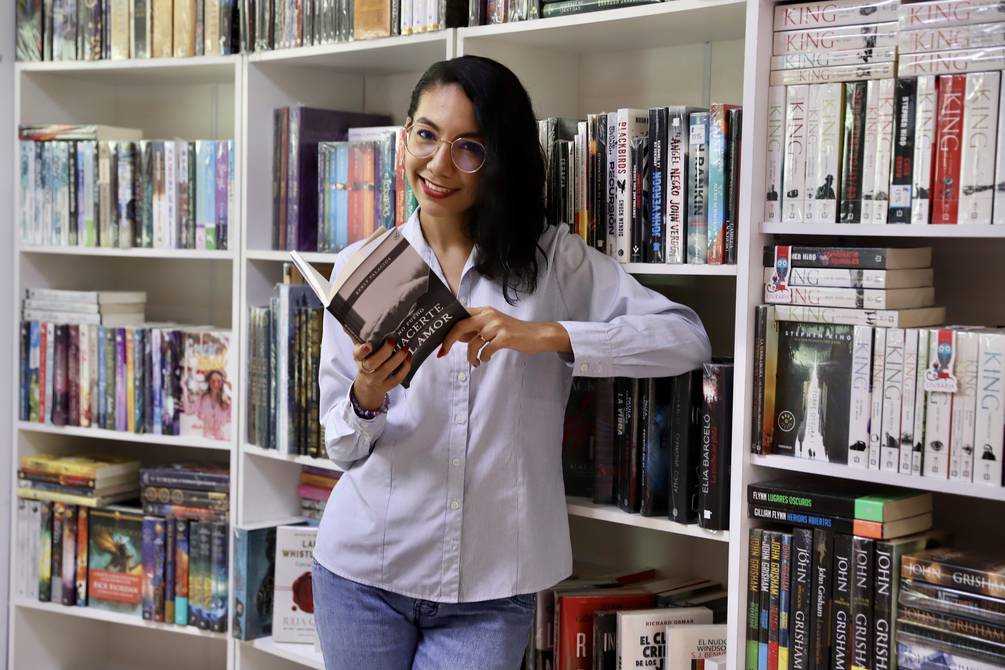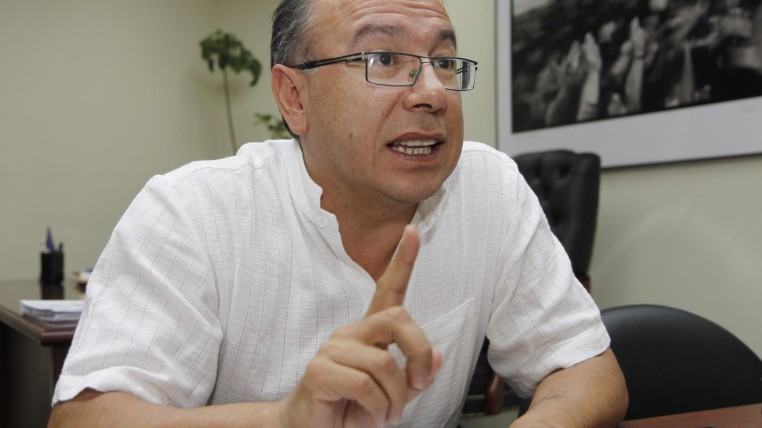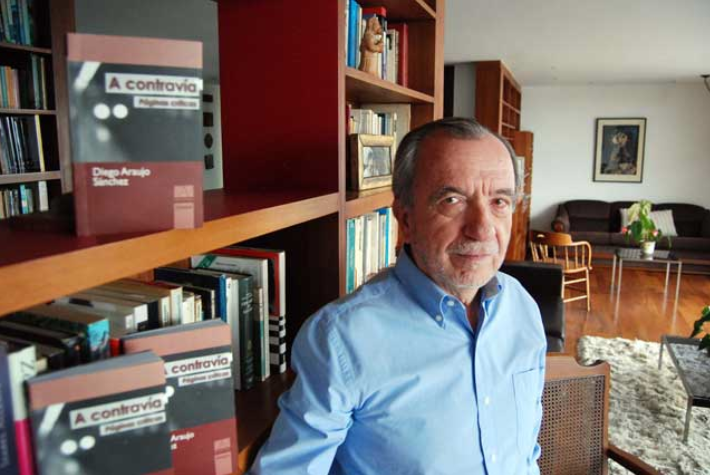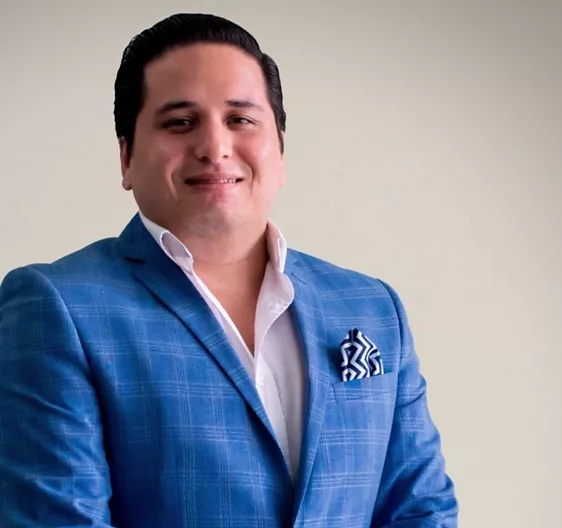Luis Zúñiga (Quito, 1955) is an Ecuadorian novelist, poet and writer. He studied anthropology in Ecuador and Italy and has vast experience working in the Andes region. He has also served in Cuba as a diplomatic and cultural emissary. He has written 3 poetry collections and 5 novels. In 1991, his historical novel “Manuela” won the Joaquín Gallegos Lara Prize. It has been published in Ecuador and in Colombia, Cuba, Peru and Venezuela. His 2010 novel, “Un As de alto vuelo” (2010) pays tribute to the Italian pilot Elia Liut who made the first flight over the Andes of Ecuador in 1920. Luis Zúñiga published his latest novel, ”Karaoke,” in 2015, about the virtual world, communication and the new existential crisis of contemporary civilization.
Continue reading “Luis Zúñiga”Category: Ecuadorian Novelists
Ecuadorian novelists, including stories, translations, bibliographies, biographies, interviews, articles, and much more. Novelists from Ecuador in one place.
Francisco Proaño Arandi
Francisco Proaño Arandi (Cuenca, January 20, 1944) is an Ecuadorian novelist, short story writer, essayist, and diplomat. In the 1960’s he was part of the literary group called Tzántzicos. In 1961, when he was 17 years old, he published a poetry book titled “Poesías.” However, since then he has dedicated himself solely to prose. In 1964 he started the magazine Z with Alejandro Moreano, and the magazine La bufanda del sol (1965-1966) with Ulises Estrella and Alejandro Moreano. In 1972, he published his first book of poems, “Historias de disecadores.” In 1984, he published his first novel, “Antiguas caras en el espejo,” which was critically acclaimed and was awarded the José Mejía Lequerica Prize by the Municipality of Quito for best prose work. In 1993, he published a second novel, “Del otro lado de las cosas.” In 2003 his short story book, “Historias del país fingido,” won the Joaquín Gallegos Lara Prize. In 2003, his third novel, “La razón y el presagio” was published. His fourth novel, “Tratado del amor clandestino,” was a finalist of the Rómulo Gallegos International Prize (2009, Caracas, Venezuela) and the José María Arguedas Prize from the Casa de las Américas (2010, Havana, Cuba). In 2009, his fifth novel “El sabor de la condena” also won the Joaquín Gallegos Lara Prize. From 2002 to 2003 he was the director of the House of Ecuadorian Culture’s magazine Letras del Ecuador. Although he was born in Cuenca, he has lived in Quito most of his life since that’s where his family is originally from.
Continue reading “Francisco Proaño Arandi”Santos Miranda Rojas
Santos Miranda Rojas (Guayaquil, September 12, 1940) is an Ecuadorian novelist and short story writer. He has lived in the city of Manta in the province of Manabi for many years and mostly identifies as Mantanese or Manabite. He was president of the Manabi chapter of the House of Ecuadorian Culture, president of the Manabi chapter of the Latin American Union of Writers, first president of the cultural group Alfaro Camina, director of the Sunday supplement Séptimo Día of the newspaper El Mercurio of Manta. Among his many accolades are the following: First Prize of the Oswaldo Castro Intriago Biennial Novel Award, presented by the House of Ecuadorian Culture, Manabi; the Intercollegiate Read Book Competition, sponsored by the Municipality of Quito; In 2000, his short story “El Niño Pintor” won silver at an international competition hosted by the government of Argentina, the Buenos Aires Lions Club, the Organization of American States, and the Spanish Embassy. Among his best known works is the novel, “La Casa del Nené” (2009) and the narrative book “Criollismo Mágico” (2014).
.
Continue reading “Santos Miranda Rojas”Silvia Stornaiolo
Silvia Stornaiolo Witt (Quito, 1980) is an Ecuadorian novelist and short story writer. She is the author of three short story collections and two novels, including: “Tanta Joroba” (2011) and “Tenga” (2012). Her latest book of short stories is “Facilona” (2020). Her father is the renowned painter Luigi Stornaiolo.
Continue reading “Silvia Stornaiolo”José Rumazo González
José Rumazo González (Latacunga, August 28, 1904 – February 26, 1995) was an Ecuadorian writer, philosopher, historian, and poet. He is the author of the celebrated poem “Parusia,” an epic poem that he began writing in 1956 that spans 5,600 pages in 7 volumes. It is one of the longest epic poems in recorded history, with nearly 220,000 verses. It is longer than the Mahabharata by Vyasa, the Ramayana by Valmiki, the Iliad and Odyssey by Homer, and the Aeneid by Virgil. He served as Ecuador’s ambassador to Honduras, Argentina, Uruguay, and Panama, in addition to serving as consul in Seville, Cadiz, Lisbon, and Barcelona. He taught History and Castilian at the Eloy Alfaro Military School, and History and Superior Grammar at the Catholic University of Quito. He was a member of the Ecuadorian Academy of Language, the Ecuadorian Academy of History, the Academies of History of Bogota and Madrid, the Ecuadorian House of Culture, the Bolivarian Society, and other organizations and institutions. From 1975 to 1984, he was the director of the Ecuadorian Academy of Language.
Continue reading “José Rumazo González”Vladimiro Rivas
Vladimiro Rivas Iturralde (Latacunga, June 5, 1944) is an Ecuadorian novelist, short story writer, biographer, opera critic, essayist, editor, translator, and award-winning university professor. He has been a resident of Mexico since 1973 and also holds Mexican citizenship. Since its establishment in 1974, he has been a professor at the Azcapotzalco Metropolitan Autonomous University in Mexico City. He has produced eight collections of short stories, two novels, and five nonfiction books. Some of his work has been translated to English, French, German, Italian, Portuguese and Bulgarian. He has also been the editor of anthologies of Ecuadorian writers, such as the acclaimed “Cuento ecuatoriano contemporáneo,” which was released in Mexico in 2001 and promptly translated into English as “Contemporary Ecuadorian Short Stories” in 2002.
Continue reading “Vladimiro Rivas”Esteban Poblete Oña
Esteban Poblete Oña aka E. Plobete (Quito, 1979) is an Ecuadorian novelist, short story writer, and poet. In 2017 he published his debut novel “El ojo a través de la calavera.” In 2021 he published the novels “Tres cantos fúnebres para Ella” and “Tremolar” which are part of a tetralogy named “Tetralogía de Q.” Its next 2 books, “El celo de los malditos” and “El Dragón en la Flor,” are expected for release in 2022.
Continue reading “Esteban Poblete Oña”Efraín Villacís
Efraín Villacís (Quito, 1966) is an Ecuadorian novelist, short story writer, playwright, editor, and literary critic. His fiction stories and essays have been published in magazines within and outside of Ecuador. As a literary critic and essayist, he has authored prologues and essays about numerous authors, including Teresa de la Parra, Enrique Gil Gilbert, Erasmo de Roterdam, José Rafael Bustamante, José de la Cuadra, and Mary Shelley. His theater play, “Contrato,” premiered in 1999. He released his debut novel, “La sonrisa hueca del señor Horudi,” in 2018. His latest novel, “Ciudad Jenga,” was published in 2020.
Continue reading “Efraín Villacís”Alfonso Barrera Valverde
Alfonso Barrera Valverde (Ambato, 1929 – September 6, 2013) was an Ecuadorian diplomat, poet, novelist, and non-fiction writer. Some of his notable works include his account of the Paquisha conflict, “Hombres de paz en lucha” (1982), the novel “Sancho Panza en América” (2005), and the children’s novel “El país de Manuelito” (1984). He served as ambassador to the Dominican Republic, Spain, Canada, Germany, and Argentina, and he also served as Ecuador’s Minister of Foreign Affairs.
Continue reading “Alfonso Barrera Valverde”Walter Franco Serrano
Walter Franco Serrano (Quito, 1932 – 2021) was a poet, novelist, and theater teacher. From 1954 to 1957, he cofounded the Quito Chamber Theater with professor Carlos Lowenberg, the Independent Theater with Francisco Tobar, and the puppet theater, casa de la Fantasia [Fantasy House]. He was a member of the Umbral Group, a literary group formed in Quito in 1952 by notable Ecuadorian writers of the time. He joined the Society of Friends of the Theater in 1955, where he taught oral expression. In 1967, he was Ecuador’s delegate to the First Latin America Theater Congress in Mexico. He lectured at the House of Ecuadorian Culture’s Theater Seminar between 1975-1976. His poetry collections include: “El instante innumerable” (1957), “El mar forastero” (1959), “Años ecuatoriales,” and “Cronica colombiana.” His novel “Un pueblo en los Andes” [A Town in the Andes] was a finalist for the 1971 Planeta award. His short story collections include: “Cinco mil dolares” and “Collazo 24.”
Continue reading “Walter Franco Serrano”Arturo Montesinos Malo
Arturo Montesinos Malo (Cuenca, August 31, 1913 – May 23, 2009) was an Ecuadorian novelist, professor, and translator who lived in the United States for many years where he worked as a translator at the United Nations in New York. In 1959, he received the “José de la Cuadra” Award for his short story collection “Arcilla indócil,” which is considered by many to be his best work. Some of his Spanish-to-English translations of contemporary writers’ short stories and poems appeared in Letras del Ecuador.
Continue reading “Arturo Montesinos Malo”Kerly Palacios
Kerly Palacios Escobar (Guayaquil, 1994) is an Ecuadorian writer and poet. She has published two poetry collections, “El desvelo de mis versos” (2018) and “Secuelas” (2020). In 2021, she published her first novel, “No puedo hacerte el amor,” an erotic romance about a couple who cannot consummate their marriage. She claims to have written it in just four hours in December 2020, while character development and editing took another six months. She has taken part in the International Book Festival of Guayaquil.
Continue reading “Kerly Palacios”Orlando Pérez
Orlando Pérez Sanchez (Quito, 1963) is an award-winning journalist and writer from Ecuador. In 2002 he published, “La celebración de la libertad,” a collection of interviews with nine writers from Latin America and Spain. In 2013 he published a novel, “La ceniza del adiós,” and a nonfiction book, “Wikileaks en la mitad del mundo,” about the U.S. diplomatic cables in Ecuador published by Wikileaks. In 2014 he co-authored “Caso Chevron: la verdad no contamina” with Nelson Silva.
Continue reading “Orlando Pérez”Diego Araujo Sánchez
Diego Araujo Sánchez (Quito, October 14, 1945) is a writer, journalist, and professor from Ecuador. He has been a professor of language and literature at the Pontifical Catholic University of Ecuador for thirty years, and a visiting professor at the Department of Classical and Modern Languages at the University of New Mexico in the United States. For 30 years, he was the deputy director of the Quito newspaper HOY, where he wrote a weekly opinion column. He also wrote a column for the newspaper El Comercio. He has written numerous articles and essays, as well as two historical-political novels, “Los nombres ocultos” (2016) and “Las secretas formas del tiempo” (2021). He is a corresponding member of the Royal Spanish Academy and a numerary member of the Ecuadorian Academy of Language, where he has served as treasurer since September 2017.
Continue reading “Diego Araujo Sánchez”Miguel Álava Alcívar
Miguel Álava Alcívar, sometimes Miguel Alavalcívar (Portoviejo, 1988) is an Ecuadorian novelist, poet and philosophy professor. He has lived in Guayaquil for many years. His novels include Universos paralelos (2004), Amada inmortal (2005), El mundo contado al revés (2011) and El Trapecista (2012), which he has referred to as his best work. In 2012 he became a member of the Guayas Chapter of the House of Ecuadorian Culture. He is on the editorial team of the International Journal of Social Science and Economics Invention.
Continue reading “Miguel Álava Alcívar”
